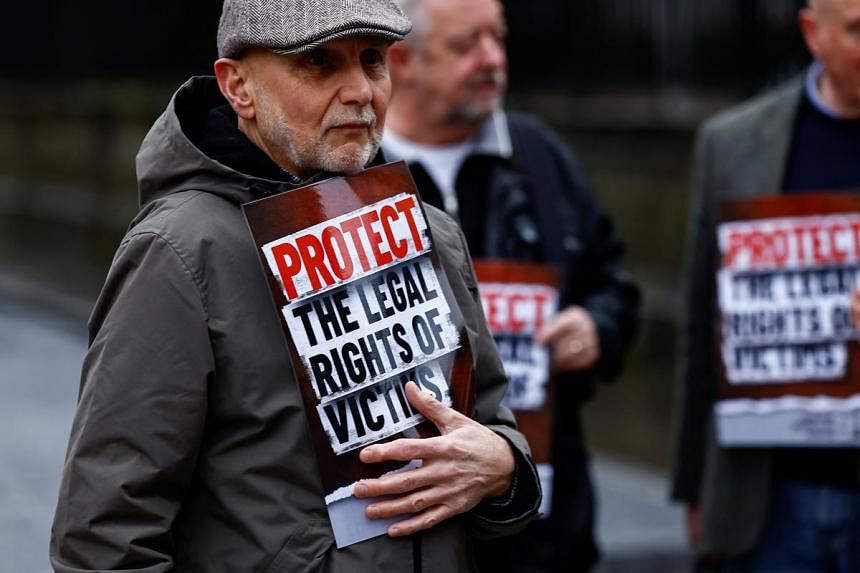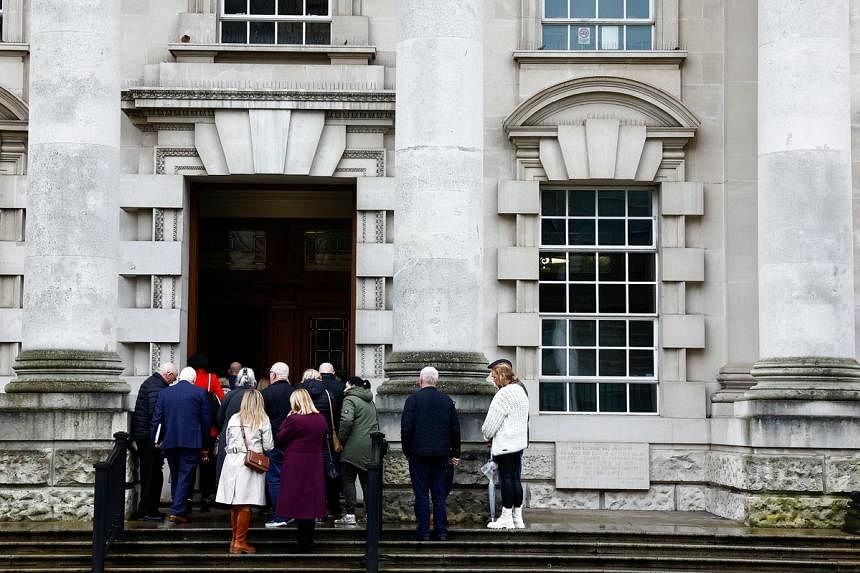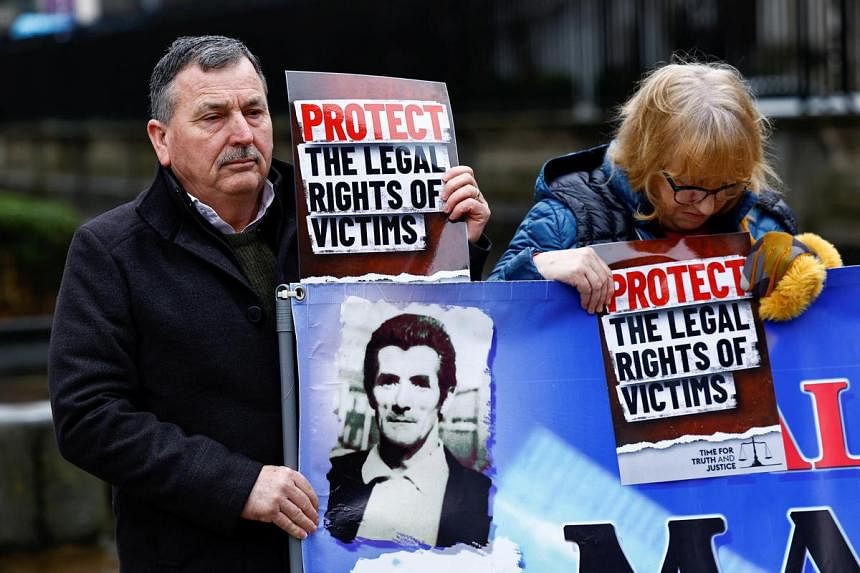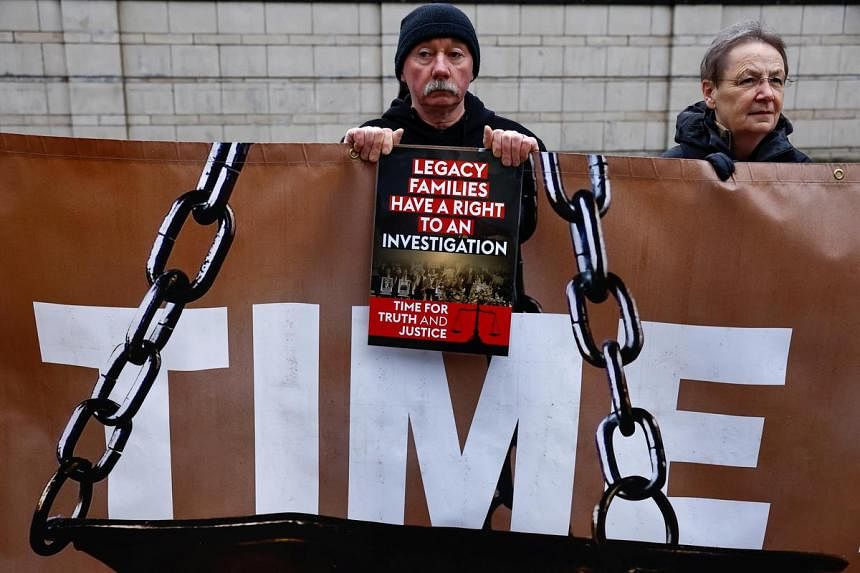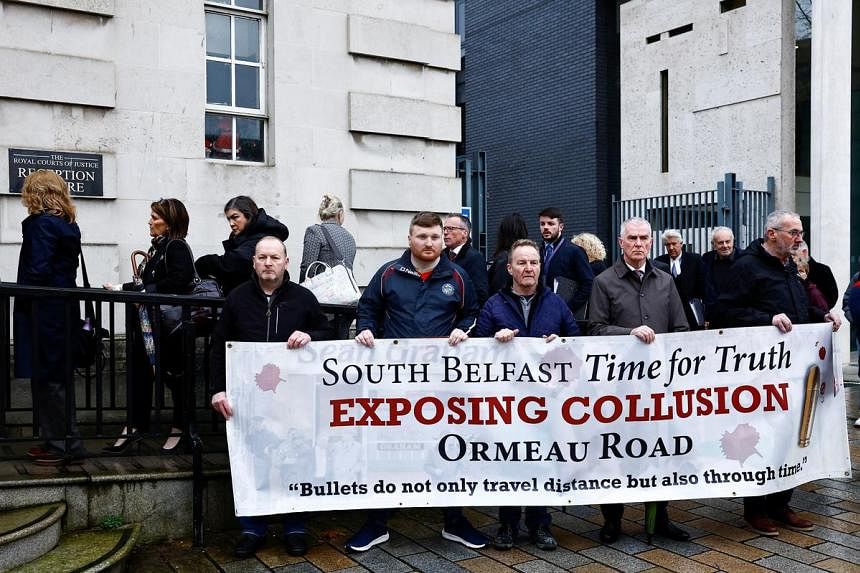BELFAST - The offering by Britain of conditional amnesties to ex-soldiers and militants involved in Northern Ireland's decades of violence is in breach of the European Convention on Human Rights (ECHR), Belfast's High Court ruled on Wednesday.
Judge Adrian Colton said the section of a new law introduced last year to offer immunity from prosecution for those who cooperated fully with a new investigative body should be disapplied.
The contentious law sparked more than 20 legal challenges in Northern Ireland, mostly from victims' families, who said it contravened the ECHR and a 1998 peace deal that ended the three decades of bloodshed.
"I am satisfied that immunity from prosecution provisions under Section 19 of the (Northern Ireland Troubles) Act are in breach of the lead applicant's rights pursuant to Article 2 of the ECHR. I am also satisfied that they are in breach of Article 3 of the ECHR," Judge Adrian Colton told the court.
"There is no evidence that the granting of immunity under the Act will in any way contribute to reconciliation in Northern Ireland. Indeed, the evidence is to the contrary," Colton said, spending more than two hours reading the 200-page judgment.
Britain's Northern Ireland Minister, Chris Heaton-Harris, said the government remained committed to implementing the law and that the challenge in Belfast was a "complex case" that was likely to lead to further action in higher courts.
Victims' families, human rights organisations and all major political parties in Northern Ireland - both British unionist and Irish nationalist - oppose the law.
'SECONDARY TRAUMA'
The Irish government is mounting a separate legal challenge against Britain at the European Court Of Human Rights, where it has also argued that the British move was incompatible with its obligations under the European Convention.
The judge declared that the immunity provisions were also incompatible with the Windsor Framework agreement governing post-Brexit trade rules for Northern Ireland that London struck with the European Union last year.
His ruling added that other sections of the Northern Ireland Troubles Act, including the halting of certain civil actions related to the conflict, were incompatible with both the ECHR and Windsor Framework.
The leader of Northern Ireland's moderate nationalist SDLP party, Colum Eastwood, called on London to abandon its approach.
The more than 20 challenges were condensed down to lead cases that were heard in November. Lawyers for the applicants told the court that victims' families who had been seeking justice for decades had suffered "a form of secondary trauma".
Britain has defended the law, saying prosecutions linked to the events of up to 55 years ago were increasingly unlikely. A lawyer for the government argued that the law was a "logical outworking" of the 1998 Good Friday Agreement and could draw a line under the conflict.
Around 3,600 people died in three decades of confrontation between Irish nationalist militants seeking a united Ireland, pro-British "loyalist" paramilitaries and the British military. REUTERS
